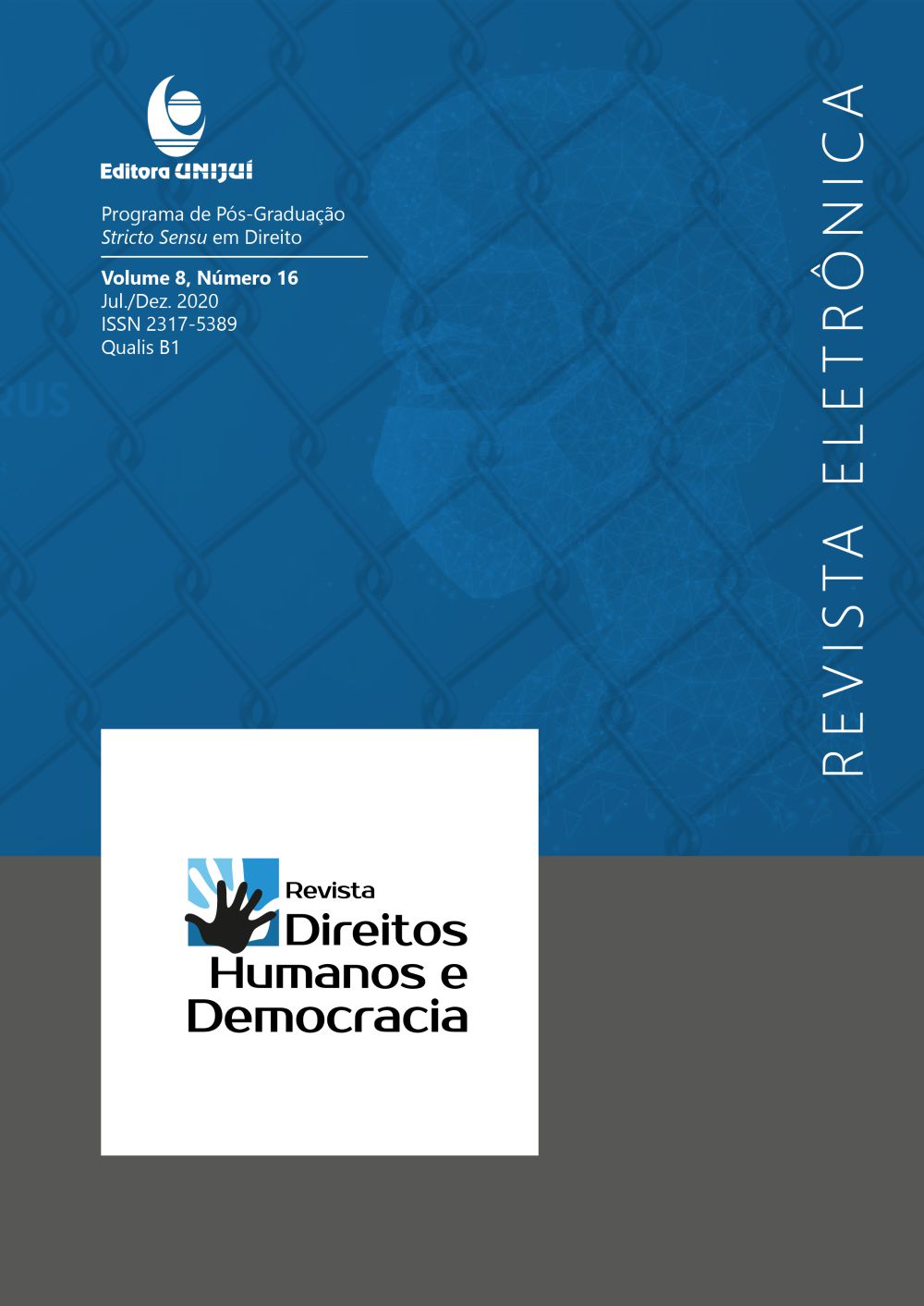A ATUALIDADE DO LIBERALISMO POLÍTICO DE BOBBIO NA ÉPOCA DO LIBERALISMO ECONÔMICO E DO POPULISMO AUTORITÁRIO
DOI:
https://doi.org/10.21527/2317-5389.2020.16.177-193Abstract
Abstract
THE ACTUALITY OF BOBBIO'S POLITICAL LIBERALISM IN THE ERA OF ECONOMIC LIBERALISM AND AUTHORITARIAN POPULISM.
After the fall of the Berlin Wall, liberal intellectuals expressed the cautious hope that the closing of the historical period of the Cold War would open a new era of expansion of the Democratic Rule of Law in the world. This hope has been fulfilled in part (the third wave of Huntington), but is now in crisis both in the consolidated democratic regimes and in the new political regimes that have left authoritarian regimes. Countries that have not historically experienced liberal democracy, such as China and Russia, are governed by regimes of economic liberalism and political authoritarianism; the Arabian springs, in most cases, did not result in democratic regimes, but in civil wars and/or military dictatorships; and in countries of democratic tradition such as Europe and the United States, the political ideology that grows most is extreme right populism. Bobbio would be concerned about this movement, because it was in favour of political liberalism, but maintained severe restrictions on economic liberalism, and was also a critic of populism, which he considered a form of plebiscitary democracy with authoritarian features. Given this context, we want to discuss the timeliness of Bobbio’s liberalism, in the hope that we are not watching the "last chapters" of a long and glorious tradition. We will do this by analysing three different types of liberalism (political, economic and social), and three different types of democracy (elitist, plebiscitary and participatory), linking them to one another in the quest for "the best form of government". Finally, we will make some considerations about the Brazilian political situation in this context.
Keywords. Political Liberalism; Economic liberalism; democracy; populism; authoritarianism.
Downloads
Published
How to Cite
Issue
Section
License
By publishing in the Revista Direitos Humanos e Democracia, authors agree to the following terms:
Articles are licensed under the Creative Commons Atribuição 4.0 Internacional (CC BY 4.0), which allows:
Share — copy and redistribute the material in any medium or format;
Adapt — remix, transform, and build upon the material for any purpose, including commercial use.
These permissions are irrevocable, provided the following terms are respected:
Attribution — authors must be properly credited, with a link to the license and indication of any modifications made;
No additional restrictions — no legal or technological measures may be applied that restrict the use permitted by the license.
Notices:
The license does not apply to elements in the public domain or covered by legal exceptions.
The license does not grant all rights required for specific uses (e.g., image rights, privacy, or moral rights).
The journal is not responsible for opinions expressed in the articles, which remain the sole responsibility of the authors. The Editor, with the support of the Editorial Committee, reserves the right to suggest or request modifications when necessary.
Only original scientific articles presenting research results of interest, not previously published or simultaneously submitted to another journal with the same purpose, will be accepted.
References to trademarks or specific products are intended solely for identification purposes and do not imply any promotional endorsement by the authors or the journal.
License Agreement: Authors retain copyright over their articles and grant the Revista Direitos Humanos e Democracia the right of first publication.













